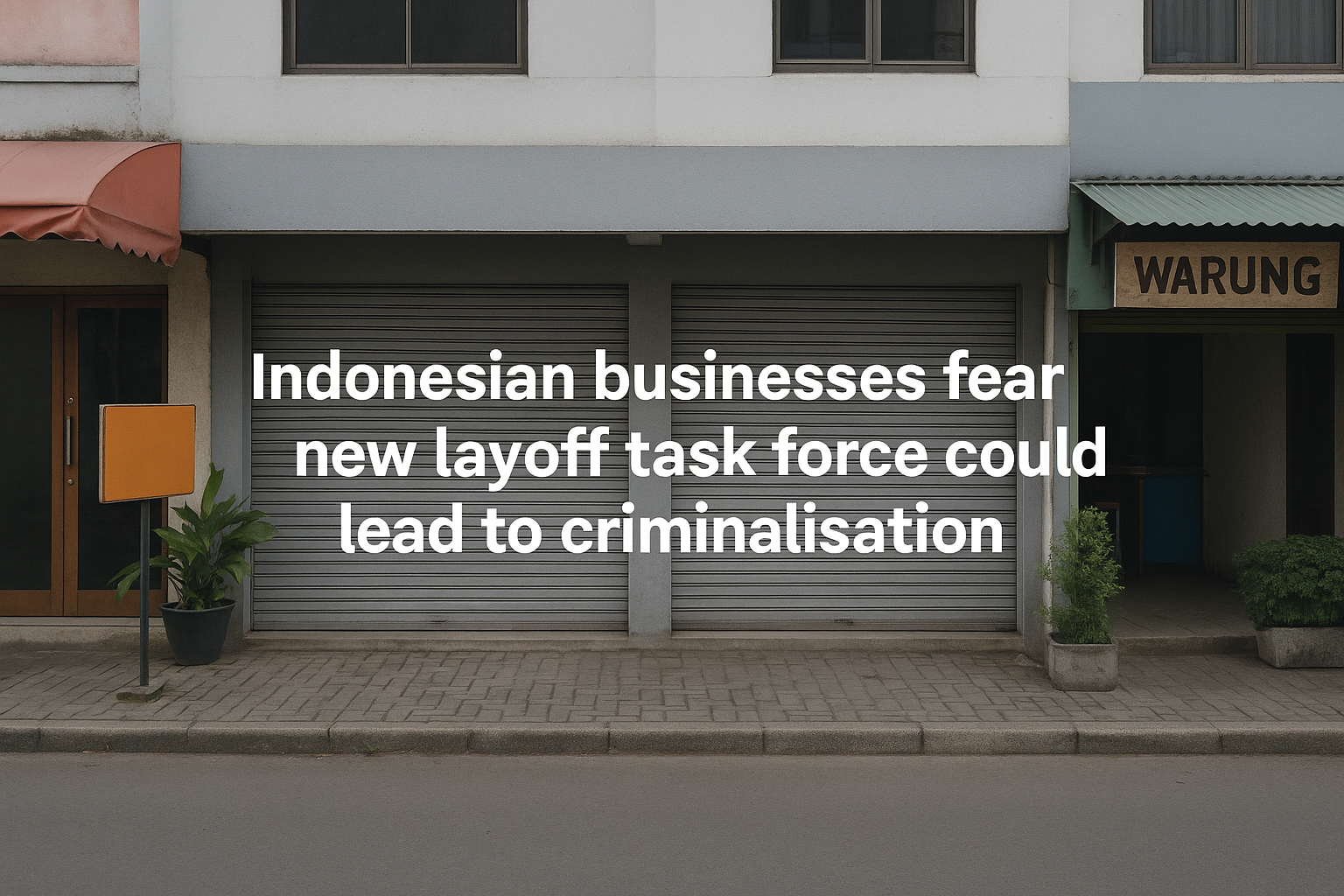JAKARTA: A new government initiative meant to protect Indonesian workers from mass layoffs is being met with anxiety—not from workers, but from business owners themselves.
President-elect Prabowo Subianto’s recent announcement of a layoff task force has sparked unease among employers, particularly those in labour-heavy industries like textiles and manufacturing. While the task force is being framed as a way to prevent arbitrary job cuts and promote dialogue, business leaders fear it could take a darker turn—one that treats employers as criminals rather than collaborators.
“It’s not that we’re against protection for workers,” said Danang Girindrawardana, Executive Director of the Indonesian Textile Association (API). “But if this task force ends up being used to investigate and punish employers, it could do more harm than good. Companies will hesitate to expand, hire, or even operate.”
Danang emphasized the importance of balance. “There are no businesses without workers, and no workers without businesses. We need understanding—not suspicion—between the two.”
The concern isn’t hypothetical. In the past, small disputes have snowballed into major crises. Danang cited PT Yihong, a footwear company where a minor disagreement escalated into a full-blown strike, triggering mass layoffs. Other companies like Sritex and Yamaha’s piano factory have had to lay off workers due to financial hardship—not mismanagement or malpractice.
The timing of the announcement—on May Day, in front of thousands of rallying workers—added to the intensity. Prabowo promised bold reforms: a dedicated task force, a National Workers Welfare Council, and even state intervention when necessary. His speech, emotional and powerful, vowed that “no worker should be laid off arbitrarily.”
But businesses are asking: will the solutions proposed encourage collaboration, or create fear?
Behind the numbers—nearly 78,000 layoffs so far in 2024, a sharp rise from previous years—are human stories of companies struggling to survive in a tough economic climate. Employers say they’re not the enemy, and urge the government to ensure that dialogue, not punishment, is the path forward.
“Workers and businesses need each other,” Danang reiterated. “Let’s not turn a solution into a new source of conflict.”








